ICE agents arresting far fewer undocumented immigrants with criminal ties in Colorado
COLORADO SPRINGS, Colo. (KRDO) -- Immigration data obtained by 13 Investigates reveals the number of undocumented immigrants with ties to criminal activity is dropping exponentially in Colorado. The drastic drop comes as the number of illegal crossings at the U.S. southern border has risen by more than 80 percent since 2020.
According to numbers from Immigrations and Customs Enforcement (ICE), over 2.3 million undocumented immigrants crossed the U.S. southern border illegally in 2022. In that same period, the number of undocumented immigrants arrested in Colorado and Wyoming, the enforcement region of ICE in Denver, dropped by 75 percent.
It's important to note numerous studies have found there is no link between undocumented immigrants and increased crimes.
What the numbers show
In 2022, Immigrations and Customs Enforcement agents arrested 430 suspected undocumented immigrants who've been convicted or are currently being prosecuted for crimes in Colorado and Wyoming. That number includes 45 suspected gang members, according to ICE.
However, the overall numbers show a steep decline in these federal arrests compared to previous years. In 2019, Colorado ICE agents arrested 2,408 undocumented immigrants, and it dipped again in 2020 with 1,433 illegal immigrants arrested with direct ties to crime in Colorado.
ICE operations in El Paso County
In early February, 13 Investigates witnessed a federal immigration arrest in El Paso County. ICE agents confronted Ruben Niz-Hernandez, 34, as he was on his way to work. According to ICE, Niz-Hernandez, a Guatemalan national, was previously deported three times in 2008, 2010, and 2011 before entering the United States illegally without detection.

ICE said he was previously convicted of aggravated incest on a child in 2021 in El Paso County. He received a sentence of 20 years to life on Colorado's Sex Offender Intensive Supervision Program. Niz-Hernandez was also convicted of DUI on Sept. 16, 2021, and was sentenced to two years of probation.
However, on the morning of his apprehension, ICE told 13 Investigates the need to place him under their custody was urgent because they had evidence he was still living with the victim he was convicted of sexually assaulting.
"He'll be taken to an immigration office and processed," ICE Deputy Field Office Director, Robert Cultrip said. "They'll explain what his rights are. They will also provide him information for pro-bono legal services, consular notification information, allow him to contact his family, things of that nature."
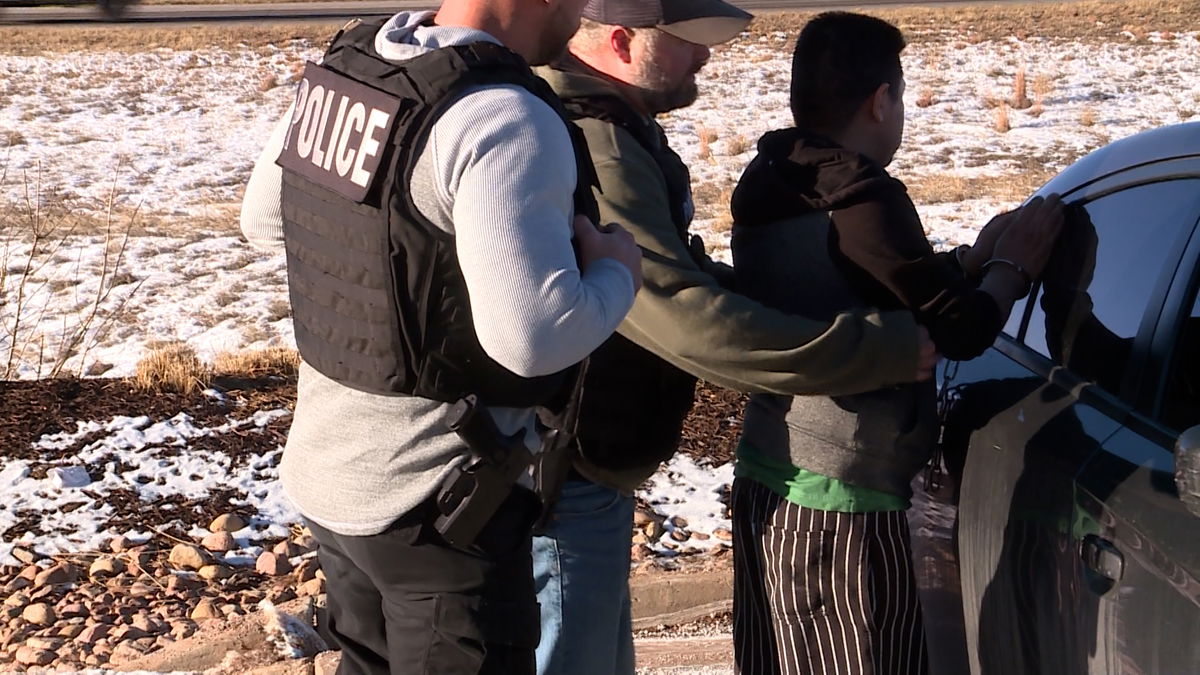
Without his prior criminal history, Cultrip said Niz-Hernandez would not be eligible for federal criminal prosecution for solely entering the United States illegally. Due to this, a federal immigration judge ordered him removed on March 29, 2023. ICE said he has since been removed from Mexico.
El Paso County Murder Case
13 Investigates uncovered that The El Paso County Sheriff's Office arrested three undocumented immigrants, Ector Sarabia-Cabrera, Isidrio Sarabia-Gonzalez, and Braulio Barron-Rubio on murder charges. According to an arrest affidavit obtained by 13 Investigates, the three men and a woman - identified as Yessica Cortes-Barcenas - took Manuel Hernandez-Uribe from his home at gunpoint. They're accused of driving him to Cheyenne Mountain, shooting him, killing him, and then dumping his body along Old Stage Rd. in unincorporated El Paso County in June of 2022.
Federal immigration sources told 13 Investigates the three male suspects entered the U.S. without detection from immigration authorities sometime in the last 20 years.
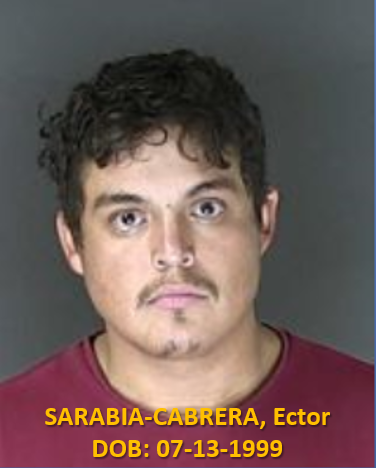
According to Immigration and Customs Enforcement (ICE), Ector Sarabia-Cabrera entered the U.S. without inspection by an immigration official on an unknown date. His criminal history includes a conviction in Arapahoe County, Colorado, in March 2022 for marijuana cultivation.
He was also convicted in January 2022, in Denver County for possessing a controlled substance with intent to distribute as well as vehicle theft. A warrant for his arrest was issued from Denver County for failure to comply with the terms of his probation stemming from a conviction on drug charges.
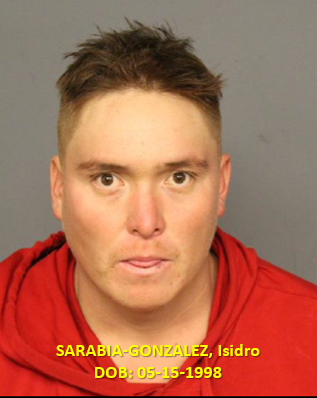
On Jan. 19, 2016, ICE reports Isidrio Sarabia-Gonzalez entered the U.S. through Sasabe, Arizona, where he was apprehended. Sarabia-Gonzalez was given an Expedited Removal and ultimately removed through Nogales, Arizona, the same day.
However, he returned without inspection by an immigration official on an unknown date. On Jan. 3, 2020, he was back in Colorado at the Arapahoe County Jail where he was held for various misdemeanor charges that are still pending.
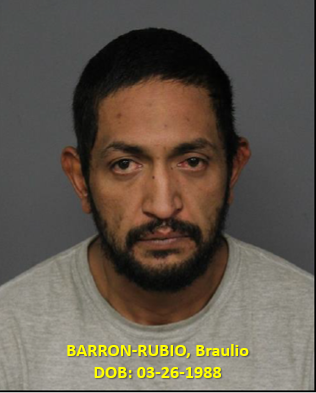
According to ICE, Barron-Rubio was arrested on Sept. 20, 2006, at then-Buckley Air Force Base in Aurora during an enforcement action looking at several companies contracted to provide construction labor. He admitted to entering the U.S. on Oct. 8, 2006, by wading across the Rio Grande River, about five miles west of the Paso Del Norte Port of Entry in El Paso, Texas. He was granted a voluntary return to Mexico and left that day.
On Oct. 11, 2006, he reentered the U.S. and was found in an SUV taking suspected undocumented non-citizens near the Fabens (Texas) Port of Entry. He was granted another voluntary return to Mexico.
On Aug. 4, 2022, he was arrested in Jefferson County on misdemeanor charges and contempt of court. He was arrested again on Oct. 13, 2022, for vehicle theft in Denver County.
If convicted on their current murder charges, these three men would join the 528 undocumented immigrants already serving time in Colorado prisons.
13 investigates learned ICE has filed federal deportation arrest papers for all three men, meaning once they go through the court system here, an immigration judge may remove them from the country.
"In our enforcement activity, our immigration officers focus on the most egregious threats to public safety and national security," Kelei Walker, Deputy Field Office Director for ICE in Denver, said.
Crime and undocumented immigrants
Despite arguments to the contrary, the National Institute of Justice found there is no link between undocumented immigration in the U.S. and increases in crime rates.
In a report created in June 2021, the NIJ stated the following:
"The relationship between immigration and crime has been the subject of much debate and great concern for public officials. Although there are arguments that stringent immigration enforcement policies are needed to combat increased risk of crime by undocumented immigrants, recent research suggests that those who immigrate (legally or illegally) are not more likely, and may even be less likely to commit crime in the US."
National Institute of Justice
Several Colorado lawmakers echo the NIJ's findings.
However, not everyone believes those findings.
Take Teller County Sheriff Jason Mikesell. He's the only sheriff in Colorado to have an agreement with ICE that allows him to hold undocumented immigrants in the Teller County Jail at the request of immigration agents. He blames state law for allegedly keeping criminals on the streets.
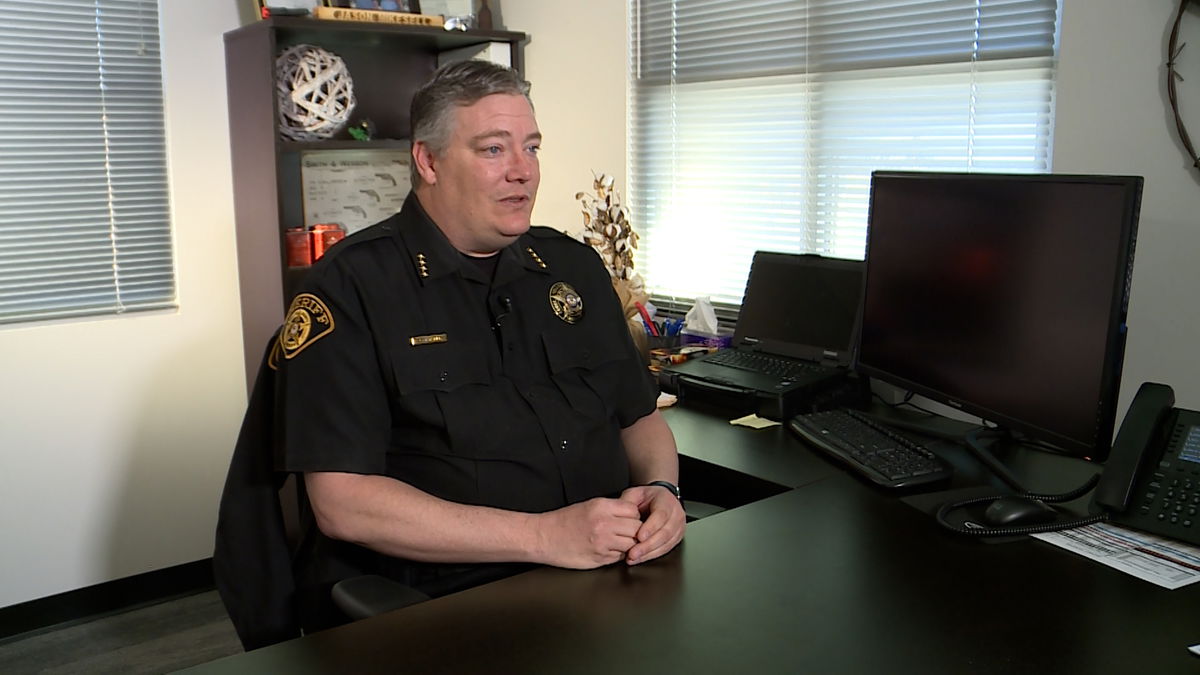
"You as taxpayers have to pay even more for these people that shouldn't be here in the first place committing crimes and why do we want these people that come here to commit crimes, still committing crimes," Mikesell questioned when he sat down exclusively with 13 Investigates. "It doesn't make sense that taxpayers have to bear that burden."
Impacts of Colorado law
Mikesell believes the substantial drop in undocumented immigrants with ties to criminal activity being arrested in Colorado is because of a 2019 Colorado law "Protect Colorado Residents From Federal Government Overreach."
That law prevents local law enforcement from placing people in their county jails on 48 holds at the request of federal immigration authorities. Mikesell said it also prohibits local law enforcement from alerting ICE when an undocumented immigrant, accused of a crime, enters any county jail in the state.
"They were attempting to stop any involvement ICE had with local agencies," Mikesell said. "They were really trying to prevent my agreement with ICE, a 287(G) agreement, from existing."
13 Investigates spoke with Adrienne Benavidez, a former House member from Denver. She was a prime sponsor of the legislation.
"If you've been arrested and you're being held on some charge and you're in custody of the sheriff's office in jail, you're not being held on immigration matters under an arrest," Rep. Benavidez said. "The requests that were coming from ICE, were just simply requests. They were not signed by a judge or anyone else. That was a real distinction. We don't do this for civil law, and that's not our role."
Before the law, the 48-hour holds, or "ICE holds," were used when an undocumented immigrant could bond out of jail on state charges or be released once they served their time or their case was dismissed.
This allowed ICE to detain undocumented immigrants and place them in the custody of the federal government and house them in ICE facilities until appearing before an immigration judge.
Mikesell's agreement with ICE could be squashed by a 2023 House bill that is currently awaiting Governor Jared Polis' signature.
That bill, HB23-1100, aims to ban ICE facilities and forbids sheriffs from using their jail for immigration arrests.
"We are hearing left and right that our local law enforcement doesn't have enough resources to provide the local law enforcement services that our communities deserve," State Rep. Lorena Garcia said. "Local law enforcement, state law enforcement should be focused on local and state law enforcement and not on federal policy."
Sheriff Mikesell is vehemently against this bill becoming law. He expressed countless reasons why this legislation is bad for Colorado, claiming it further handcuffs ICE from doing their jobs.
"The thing for ICE is that they're working hard to do it, but now it's going to be twice as much time to try to find these offenders because nobody's going to work with them, so you're releasing criminals back into the population too," Mikesell said.
Governor Polis's Office would not tell 13 Investigates if he planned to sign this bill into law. A spokesperson said they are still reviewing the bill in its "final form."
Nonetheless, Mikesell said he will continue to hold undocumented immigrants who wish to commit crimes in Teller County "accountable for their actions."
"So don't come in this county and think you're going to commit crime, get away with it, and walk away with it just on state charges," Mikesell said.
Do you have a tip you want 13 investigates to look into? Email us at 13investigates@krdo.com
